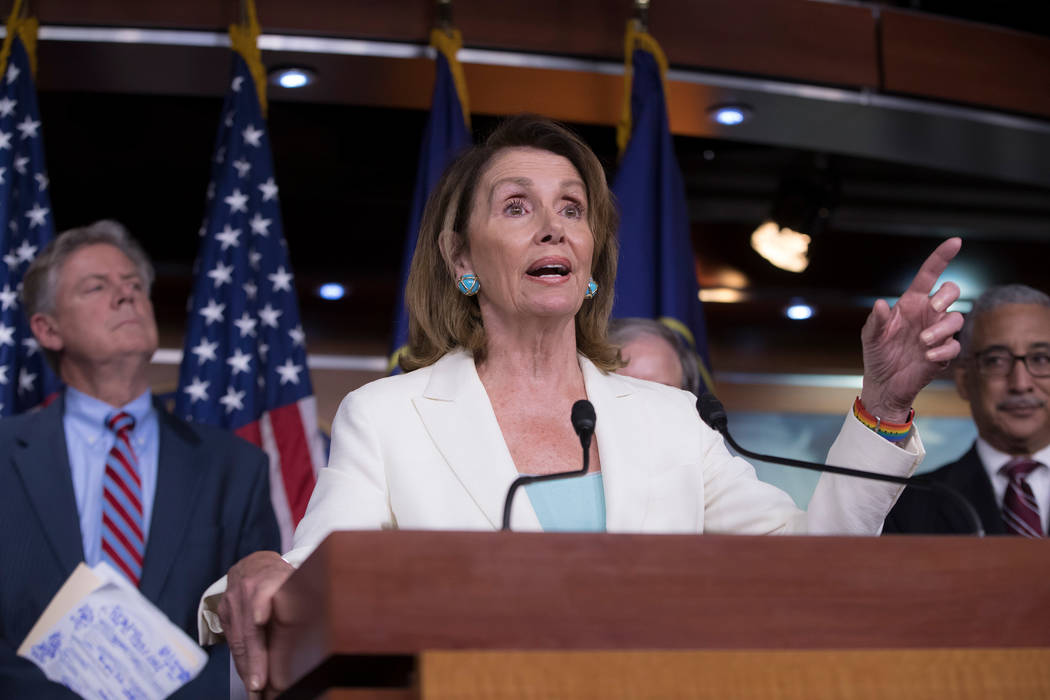EDITORIAL: Democrats unveil their Better Deal, a paean to big government
Back in 1994, congressional Republicans unveiled the “Contract with America,” outlining an agenda that embraced low taxes and smaller government while promoting entrepreneurial activity. The manifesto was a smash with the American people, as the GOP picked up 54 House seats that November to take control of the lower chamber for the first time in more than 40 years.
Last week, Democrats — still grappling with how they got creamed in the 2016 elections — unveiled a new platform intended to appeal to the working-class voters who rejected the party last year. It’s called the “Better Deal” and is the antithesis of the GOP’s Contract, emphasizing the progressive prescription of big government and a punishing bureaucratic apparatus over individual liberty and entrepreneurship.
Whether it propels the Democrats to a successful midterm remains to be seen, of course, although if history is any indication, the party is likely to pick up seats, even if by accident. But at the very least, the statement is instructive in that it confirms today’s Democrats believe salvation and progress depend on politicians and bureaucrats.
Unlike the GOP Contract, which included a number of specific policy initiatives, the Better Deal is full of vague and abstract concepts involving jobs, anti-trust enforcement and drug prices. And the recipe Democrats offer is clear: Government is the answer to the country’s problems.
“Democrats will show the country that we’re the party on the side of working people — and that we stand for three simple things,” said Senate Minority Leader Chuck Schumer, the New York Democrat. “First, we’re going to increase people’s pay. Second, we’re going to reduce their everyday expenses. And third, we’re going to provide workers with the tools they need for the 21st century economy.”
Such hazy, populist rhetoric leaves unsaid the details regarding how Sen. Schumer and friends plan to “increase people’s pay” or “reduce their everday expenses.” Suffice it to say, however, that it certainly involves bureaucratic diktats and edicts rather than the creation of a friendlier regulatory atmosphere for entrepreneurs and the private enterprises that create jobs and prosperity.
In addition, Democrats in the Better Deal notably downplay their allegiance to identity politics and a hyper-liberal social agenda, clearly calculating that it wouldn’t fly with the type of voters they’re trying to attract. That will only further complicate efforts to broaden their support base.
Fact is, many voters out there in red-state America remain an utter mystery to the Democratic Party, and the Better Deal only reflects the confusion. Entire books have been written examining why these hard-working, gun-toting, church-going voters reject their own “self-interest” by opposing higher taxes on the rich or the “free stuff” and government programs that Democrats have long favored to coerce their support.
In a recent New York Times column, David Brooks took up precisely this issue — and nailed the answer.
“In their view,” Mr. Brooks wrote, “government doesn’t reinforce the vigorous virtues. On the contrary, it undermines them — by fostering initiative-sucking dependency, by letting people get away with their mistakes so they can make more of them and by getting in the way of moral formation.
“The only way you build up self-reliant virtues, in this view, is through struggle. Yet faraway government experts want to cushion people from the hardships that are the schools of self-reliance. Compassionate government threatens to turn people into snowflakes.”
He concludes: “I’d say they believe that big government support would provide short-term assistance, but that it would be a long-term poison to the values that are at the core of prosperity.”
This is a perspective Chuck Schumer and Nancy Pelosi would have been well advised to consider before unveiling their Better Deal.




























